How To Help a Shy Preschooler Feel More Confident
Posted by The Learning Box Preschool on Jan 19th 2021
Not every child in your classroom will jump at the opportunity to participate. Preschoolers can be especially shy, as they are just beginning to hone their socialization skills. Shyness is not an unusual temperament. You might even discover while talking to parents that your quiet classroom observers are chatterboxes at home, raving about the experiences they've had in school. Facilitating open communication with parents is the first step toward urging a shy preschooler out of their shell.
You can subtly encourage shy preschoolers to participate during classroom activities without calling attention to their uncertainties, simply by modeling and capitalizing on their strengths.
Build Rapport
Start by observing your shy preschool students with a keen eye. What activities peak their interests? Do they tend to draw racecars or horses? Use their interests to generate talking points for curriculum-based topics and relationship building alike. Your shy preschoolers will feel more secure discussing topics they feel confident and excited about than those they know nothing about.
One-On-One Interactions
Groups can be overwhelming, so whenever feasible, encourage one-on-one interactions in your classroom. You know your students best --pair shy preschoolers with outgoing preschoolers during activities. The social butterflies will get the conversation started and facilitate the duration of talking, so the more introverted students are encouraged to participate without the overwhelming need to initiate or the burden to painfully maintain a conversation.

Task-Oriented Confidence Boosters
Allocate helper jobs to shy preschoolers, such as line leader, distributor or collector of art materials, or flag holder, that leave a positive impact on the classroom. This encourages social involvement by moving about the room while also boosting self-confidence by completing meaningful work. Shy preschoolers will take pride in knowing they were involved yet not be deterred by the need to interact directly.
Avoid Embarrassing Situations
The odds are that you already have a No-Tolerance Policy when it comes to bullying in your classroom. Be acutely aware of these situations pertaining to shy preschoolers, as you may have to intervene quickly to avoid embarrassment. Modeling appropriate social behavior and demonstrating verbal responses to bullying will provide preschoolers with the tactics they'll need to confidently address a bully by saying, "Please stop," and walking away to get help.
With a few, simple strategies you can create an engaging classroom for shy preschoolers. Remember to involve parents, especially by inviting them to participate in the classroom, and note that they might also present a shy demeanor. Your classroom can be a supportive environment for shyness, promoting independence, confidence, and friendships.

